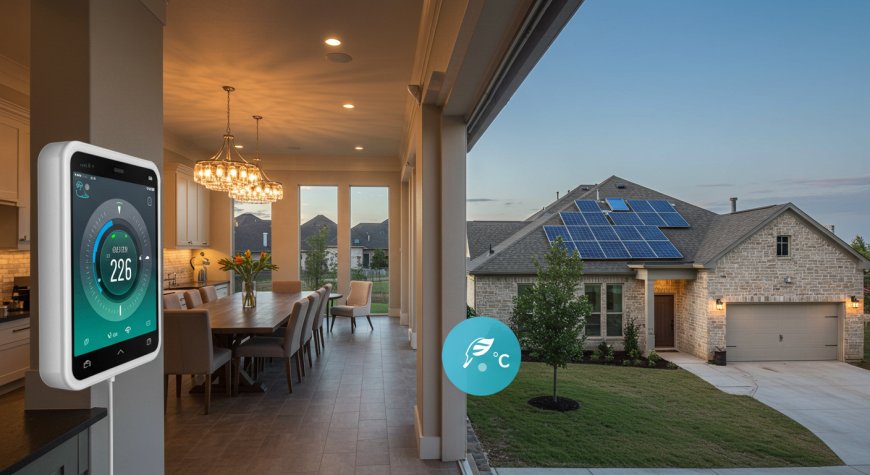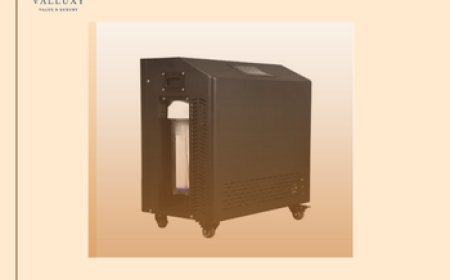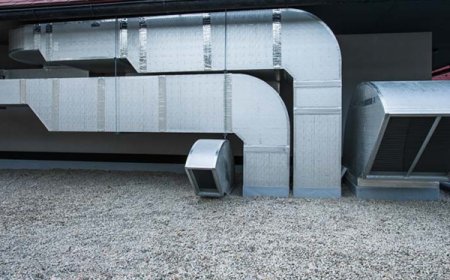How Do Smart Home Upgrades in Addison Save Energy?
In conclusion, smart home upgrades offer Addison homeowners a valuable opportunity to save energy, reduce utility bills, and contribute to a more sustainable future.

Smart home upgrades are becoming increasingly popular as homeowners in Addison seek ways to save energy and reduce their environmental footprint. These advanced technologies not only make your home more convenient but also significantly lower your energy consumption. This article explores how smart home upgrades, including smart thermostats, energy-efficient lighting, and smart appliances, can help homeowners in Addison save energy and reduce their monthly bills.
Introduction to Smart Home Upgrades and Their Energy-Saving Potential in Addison
In today's world, where energy costs are rising, it is essential to make your home as energy-efficient as possible. home remodeling in Addison involve integrating technology that allows homeowners to automate various functions within the home, such as controlling heating, cooling, lighting, and appliances. These systems can save you significant amounts of energy and money, while also improving the overall functionality of your home.
Energy savings are increasingly important in Addison, as many homeowners seek ways to lower their utility bills without compromising comfort. With the rise in energy consumption, smart home technology provides an intelligent solution to keep energy usage in check, ensuring that every device works efficiently and at the right time.
What Are the Key Smart Home Upgrades That Save Energy in Addison?
Upgrading to smart home systems offers a range of benefits for homeowners in Addison, especially in terms of energy conservation. By integrating the latest smart technologies, your home becomes more energy-efficient and easier to manage.
Smart Thermostats for Energy Efficiency
A smart thermostat is one of the most effective smart home upgrades for saving energy. Unlike traditional thermostats, which require manual adjustments, a smart thermostat learns your heating and cooling preferences and adjusts accordingly.
These devices can optimize energy usage by automatically adjusting temperatures when you’re away from home, reducing unnecessary heating and cooling. As a result, smart thermostats can significantly lower your energy bills. Many models also feature remote access, allowing you to control your thermostat from anywhere via smartphone apps, providing more flexibility and convenience.
Integrating a smart thermostat into your home can help you save energy by ensuring that your heating and cooling systems are not running when they’re not needed. This smart solution is ideal for homeowners looking for an easy yet powerful way to enhance their home’s energy efficiency.
Smart Lighting Systems for Reduced Energy Consumption
Lighting can account for a significant portion of a home’s energy usage. Smart lighting systems help homeowners control lighting more efficiently. These systems are integrated with LED bulbs that use less energy compared to traditional incandescent bulbs.
Additionally, smart lighting systems allow homeowners to set timers, schedules, and adjust brightness, ensuring that lights are only on when necessary. Motion sensors can also be installed to turn off lights automatically when a room is empty. This integration not only saves energy but also extends the lifespan of your bulbs, reducing maintenance costs.
By replacing standard bulbs with energy-efficient smart lighting systems, homeowners in Addison can lower energy consumption while improving the ambiance and usability of their living spaces.
Energy-Efficient HVAC Systems Integrated with Smart Home Technology
Heating, ventilation, and air conditioning (HVAC) systems are among the largest energy consumers in a home. By integrating smart home technology with your HVAC system, you can maximize energy efficiency and reduce energy waste.
Smart thermostats, for example, can be linked to HVAC systems to create a more energy-efficient heating and cooling strategy. These systems can detect when rooms are occupied or vacant and adjust the temperature accordingly, ensuring that energy is not wasted on unoccupied areas. Additionally, smart HVAC systems can be programmed to maintain optimal temperatures without overworking your system, reducing overall energy consumption.
These smart HVAC systems also offer real-time monitoring, allowing you to track energy usage and make adjustments as needed. This gives homeowners a better understanding of their home’s energy efficiency and opportunities for further savings.
Smart Appliances and Energy Management Systems
Smart home appliances, such as refrigerators, washing machines, and dishwashers, are designed to operate efficiently, consuming less energy than their traditional counterparts. Energy-efficient appliances can be controlled remotely or scheduled to run during off-peak hours, when electricity costs are lower.
These smart appliances are often equipped with sensors and advanced algorithms that adjust their operations based on usage patterns. For instance, a smart water heater can preheat water during low-demand periods, ensuring that it only consumes energy when needed.
By installing smart home systems that monitor and control these appliances, homeowners can reduce energy consumption without sacrificing comfort or convenience.
How Do Smart Home Upgrades Impact Your Energy Bills in Addison?
Smart home upgrades significantly impact energy bills by ensuring that energy is used efficiently and only when necessary. The energy-saving potential of smart home systems can lead to substantial cost savings over time.
By replacing traditional appliances with energy-efficient models and installing systems like smart thermostats, homeowners can reduce the amount of energy used to heat, cool, and power their homes. According to recent studies, homes with smart technology can reduce their energy bills by up to 30%.
Moreover, these upgrades can help homeowners take advantage of energy-saving features such as off-peak pricing for electricity, allowing them to use energy when it’s less expensive. The initial cost of smart upgrades may be recouped quickly through long-term savings on utility bills, making them a wise investment for the future.
How Do Smart Home Solutions Contribute to Sustainable Living in Addison?
Smart home solutions are an essential component of sustainable living. With the growing importance of eco-friendly solutions, smart homes help reduce the environmental impact of everyday activities by optimizing energy usage.
Eco-Friendly Smart Home Technology
Smart home systems contribute to sustainability by providing homeowners with the tools they need to monitor and reduce their energy consumption. Eco-friendly smart home devices, such as smart thermostats, energy-efficient lighting, and solar-powered systems, help minimize energy waste and promote the use of renewable energy sources.
These systems also make it easier for homeowners to track their energy usage in real-time, identify areas where energy is being wasted, and take corrective actions to lower their environmental footprint. By embracing green technologies, homeowners in Addison can reduce their carbon emissions and contribute to a more sustainable future.
Renewable Energy Integration
Many smart home systems can be integrated with renewable energy sources like solar panels, further enhancing energy efficiency. Smart solar inverters, for example, can manage the distribution of energy generated by solar panels, ensuring that excess energy is stored or used at the optimal time.
By pairing renewable energy systems with smart home technology, homeowners can create a fully sustainable living environment that reduces reliance on traditional power grids and contributes to a greener community in Addison.
What Are the Best Smart Home Devices for Energy Efficiency in Addison?
Homeowners looking to save energy should prioritize smart home devices that provide maximum efficiency and ease of use.
Top Smart Home Products for Saving Energy
-
Smart Plugs: These devices allow you to control power to appliances, preventing energy waste from devices that are left on unnecessarily.
-
Smart Water Heaters: These water heaters optimize energy usage by heating water only when needed, saving energy while ensuring hot water is always available.
Best Smart Home Systems to Integrate for Maximum Energy Savings
For maximum energy savings, homeowners should consider integrating a home automation system that connects all smart devices. This system can manage everything from heating and cooling to lighting and appliances, optimizing their operations for energy efficiency.
How to Get Started with Smart Home Upgrades in Addison
Getting started with smart home upgrades is simpler than you might think. Whether you want to upgrade your thermostat or install an entire energy management system, the first step is assessing your home’s needs and choosing the right devices for maximum energy savings.
Choosing the Right Upgrades
Start by selecting devices that will have the most significant impact on your energy consumption. Smart thermostats and energy-efficient lighting are good entry-level options, while smart HVAC systems and appliances are ideal for more comprehensive upgrades.
Hiring Professionals for Installation
While many smart home upgrades are DIY-friendly, hiring professionals ensures that complex systems are installed correctly and integrated effectively. Experts can also advise you on the most energy-efficient solutions for your home.
Conclusion
In conclusion, smart home upgrades offer Addison homeowners a valuable opportunity to save energy, reduce utility bills, and contribute to a more sustainable future. With advancements in technology, the potential for energy-efficient living has never been greater. By integrating smart thermostats, energy-efficient lighting, and smart appliances, homeowners can enjoy a more comfortable and environmentally friendly home.
FAQs
1. What is a smart home upgrade and how does it save energy?
A smart home upgrade involves installing automated devices like smart thermostats and energy-efficient lighting systems that help optimize energy usage, reducing unnecessary consumption and lowering energy bills.
2. How much can I save on energy bills with a smart home in Addison?
By upgrading to smart home systems, homeowners can save up to 30% on their energy bills through better energy management and optimized use of heating, cooling, and appliances.
3. Are smart thermostats worth the investment in Addison?
Yes, smart thermostats are highly effective at optimizing heating and cooling systems, saving energy by adjusting temperatures when needed, leading to long-term savings on energy bills.
4. What is the best smart lighting system for energy savings in Addison homes?
Smart LED bulbs and systems with motion sensors and automated dimming are excellent for energy-efficient lighting, ensuring that lights are only used when necessary.
5. How can I make my HVAC system more energy-efficient with smart technology?
Smart thermostats can optimize HVAC systems by regulating temperature based on occupancy, ensuring energy savings without sacrificing comfort.
6. How do energy-efficient appliances save energy in a smart home?
Energy-efficient appliances use less power to perform the same tasks as traditional appliances, and when integrated into a smart home system, they can be scheduled or remotely controlled to operate more efficiently.
7. Do I need a special installation for smart home upgrades in Addison?
Most smart home devices are easy to install, but more complex systems like smart HVAC may require professional installation to ensure optimal performance.
8. Can smart home systems work with solar power in Addison?
Yes, smart home systems can integrate with solar panels, optimizing the use of renewable energy and reducing reliance on the grid.
9. Are smart home devices secure and reliable for everyday use in Addison?
Most smart home devices come with built-in security features like encryption, ensuring that they are secure for everyday use in your home.
10. Can smart home upgrades in Addison increase the resale value of my home?
Yes, smart home upgrades can increase your home's resale value by offering energy efficiency and modern technology, both of which are attractive to prospective buyers.



































































